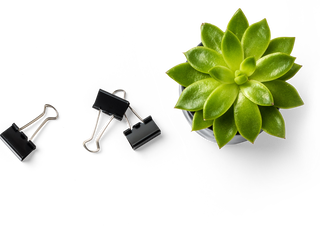What’s the Link between Lupus and Arthritis?
Understanding the Overlap, Symptoms, and Treatment Options
Lupus and arthritis are two distinct conditions — but did you know they often overlap?
If you or someone you know is living with lupus, you might have noticed symptoms like joint pain, stiffness, and swelling — all of which are also common in arthritis. So, what’s the connection between these two conditions?
At Easy Pharmacy Hub, we believe knowledge is power. In this blog post, we’ll break down the link between lupus and arthritis, how to recognize the symptoms, and what treatment options are available.
🧬 What Is Lupus?
Lupus, or Systemic Lupus Erythematosus (SLE), is a chronic autoimmune disease where the body’s immune system attacks its own tissues — including skin, joints, kidneys, heart, and more. It can range from mild to life-threatening, depending on which organs are affected.
🦴 What Is Arthritis?
Arthritis is a general term for inflammation in the joints. The two most common types are:
-
Rheumatoid arthritis (RA) – an autoimmune disease affecting joint linings
-
Osteoarthritis (OA) – a wear-and-tear condition due to aging or overuse
Lupus-related joint pain is more similar to rheumatoid arthritis, as both involve autoimmune inflammation.
🔗 How Are Lupus and Arthritis Linked?
About 90% of people with lupus experience joint symptoms that resemble arthritis. These include:
-
Joint pain and tenderness
-
Morning stiffness
-
Swelling and warmth in joints
-
Reduced range of motion
However, lupus arthritis usually does not cause joint damage as quickly or severely as rheumatoid arthritis does — but it can still greatly impact your quality of life.
🧠 Key Differences: Lupus vs. Rheumatoid Arthritis
| Feature | Lupus Arthritis | Rheumatoid Arthritis |
|---|---|---|
| Autoimmune? | Yes | Yes |
| Joint damage? | Rare and mild | Common and can be severe |
| System-wide symptoms? | Yes (affects organs, skin, blood) | Mainly affects joints |
| Skin rash present? | Often (e.g. butterfly rash on the face) | Rare |
⚠️ Other Lupus Symptoms That May Accompany Joint Pain
-
Fatigue and fever
-
Skin rashes
-
Hair loss
-
Kidney problems
-
Mouth ulcers
-
Sensitivity to sunlight
If you have persistent joint pain plus any of these symptoms, it’s important to talk to your doctor — it may be more than just arthritis.
💊 How Is Lupus-Related Arthritis Treated?
Treatment aims to reduce inflammation, control immune response, and relieve pain. Common options include:
✅ Medications:
-
NSAIDs (e.g., ibuprofen, naproxen) for joint pain
-
Corticosteroids to reduce inflammation quickly
-
Immunosuppressants (e.g., methotrexate) to control lupus activity
-
Antimalarials (like hydroxychloroquine) — commonly used in lupus treatment
🛒 You can find a range of doctor-recommended pain relief and autoimmune support medications at Easy Pharmacy Hub
💡 Self-Care and Lifestyle Tips
-
Rest and pace yourself to manage fatigue
-
Gentle exercise to maintain joint flexibility
-
Healthy diet rich in anti-inflammatory foods
-
Sun protection to avoid triggering flares
-
Regular checkups to monitor disease progression
🩺 When to See a Doctor
See a healthcare provider if you experience:
-
New or worsening joint pain
-
Unexplained fatigue, rashes, or fevers
-
Swelling in joints that doesn’t go away
Early diagnosis and treatment can prevent long-term complications and improve quality of life.
🛍️ Shop Arthritis & Lupus Support Products
From anti-inflammatory medications to joint support supplements and pain relief creams, Easy Pharmacy Hub offers trusted products to help you manage lupus-related joint pain safely and conveniently.
Final Thoughts
Lupus and arthritis may seem like different conditions, but they’re closely connected through inflammation and autoimmune activity. If you’re experiencing joint pain, don’t ignore it — understanding the cause is the first step toward effective relief.
At Easy Pharmacy Hub, we’re here to support your journey with genuine medications, expert advice, and easy online access to the care you need.
Stay informed. Stay supported. Stay healthy — with Easy Pharmacy Hub.


